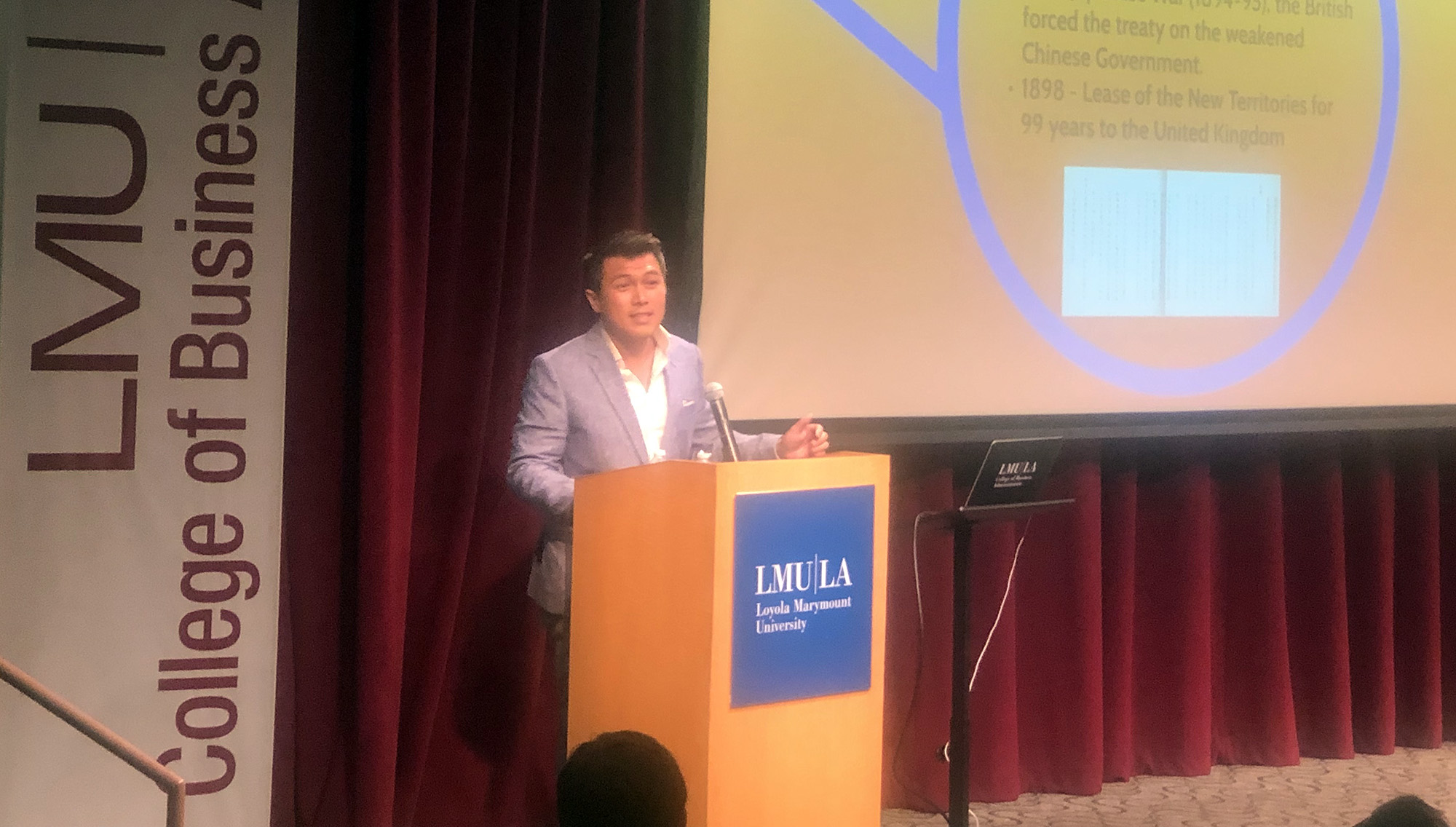
Stephen Cheung, EVP of Los Angeles Economic Development Corporation (LAEDC) and President of World Trade Center Los Angeles (WTCLA), visited LMU in fall 2019 for a special lecture titled “One Country, Two Systems: The Economic and Trade Impacts of Hong Kong on Los Angeles,” as part of the Center for Asian Business D.K. Kim Lecture Series.
Cheung began his lecture with remarks on the recent political turmoil in Hong Kong and shared his view that the root cause of this political conflict originated from trade. Cheung provided a brief historical context surrounding Hong Kong, China and the United Kingdom. He explained how the First and Second Opium Wars occurred and how China ceded Hong Kong island and Kowloon Peninsula in the aftermath of these wars. In the wake of China’s defeat in the first Sino-Japanese War (1894-1895), the 99-year lease of new territories was granted to the United Kingdom in 1898.
Starting from the 1950s, Hong Kong began growing very rapidly and transformed from an EntrePort to a manufacturing industry. In the 1970s, Hong Kong moved away from manufacturing and focused more on finance and tourism. During the late 70s and 80s, Hong Kong flourished as a modern metropolis. Cheung stated, “The British influence with the Chinese culture is really the best of both worlds.” As the end of the 99-year lease approached, the signing of the Sino-British Joint Declaration took place in 1984. The proposal of the concept of one country, two systems came into play as the circumstances of transition from a democracy to a communist government proved to be very difficult.
In 1997, the British handed over of the rights to Hong Kong back to China. As China started gaining power, other countries looked at China’s 1.4 billion consumers, which resulted in many companies moving their headquarters or operations to Shanghai. However, Chinese market conditions have changed as labor costs rose and foreign direct investments (FDI) of the Chinese firms accelerated. In fact, after the 2008 U.S. recession, most of the FDI came from China. Just in the downtown LA area alone, hundreds of millions and even multi-billion projects were funded by Chinese investments. Concerned about the decreased foreign reserve, the Chinese government began prohibiting its companies from making FDI in the industries of entertainment, real estate and hotels. This hurt the LA economy as it became reliant on Chinese investments and the recent tariffs that President Trump has imposed on the imports from China have aggravated the situation.
The WTCLA conducts an annual report on FDI, quantifying the number of foreign owned establishments in Southern California. As Los Angeles is heavily reliant on international trade and foreign investments, LA County has over 10,000 foreign owned establishments that have created almost half a million jobs. Cheung closed his lecture by saying, “We’re developing into this global village where more and more cultures are starting to mix in terms of the way that business and industries collaborate with each other. This is the struggle we’re having right now and becoming our identity. But what is important is that we can have these dialogues and understand that there are differences.”
Written by LMU student Rossten Nakamura



